I love books. And I love finding a book that gives me something to think about. Most books are good for a couple of ideas, but it’s rare to find a book that actually changes the way you think. Fortunately it happens.
Here’s my list of five books that have changed the way I think about thinking, about life, about work, and meaning. I’ve included a thought provoking quote from each one. Check them out and let us know if you agree.
1. The Opposable Mind by Roger Martin.
“The great ones utilize their experiences to build and deepen their mastery while maintaining and expressing their originality. Average leaders do one or the other.”
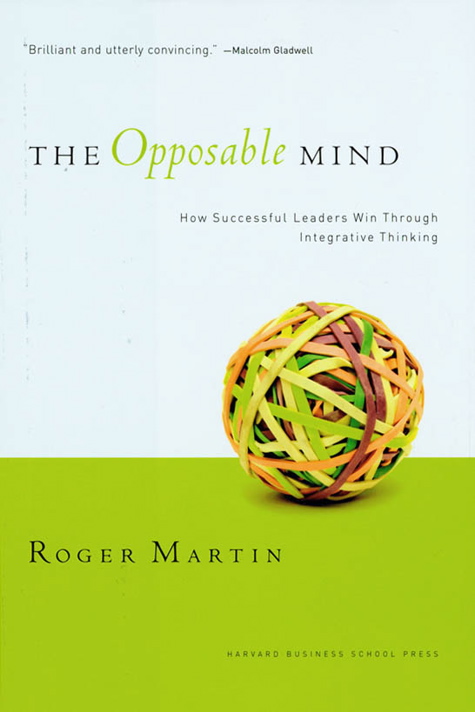 There’s an enormous industry of books that profile successful entrepreneurs and business men and women—all published with the inherent promise that you can find the same success if you simply do what they did. It’s the case-study approach taught in virtually every business school in the world. That kind of conventional thinking can work, if the problems you are solving are the same ones that others have worked on. But chances are, your problems will be different. In this fantastic book, Roger Martin argues that rather than do what successful people do, we need to think like successful people think. Martin outlines the process for thinking integratively—finding what’s salient from opposing ideas and finding creative solutions that go beyond compromise and trade-offs. This book is a bit academic, but if your job (or life) involves finding solutions to tricky problems or balancing the needs of competing interests, it should be the next book you read. More than any other book on this list, it will change the way you think.
There’s an enormous industry of books that profile successful entrepreneurs and business men and women—all published with the inherent promise that you can find the same success if you simply do what they did. It’s the case-study approach taught in virtually every business school in the world. That kind of conventional thinking can work, if the problems you are solving are the same ones that others have worked on. But chances are, your problems will be different. In this fantastic book, Roger Martin argues that rather than do what successful people do, we need to think like successful people think. Martin outlines the process for thinking integratively—finding what’s salient from opposing ideas and finding creative solutions that go beyond compromise and trade-offs. This book is a bit academic, but if your job (or life) involves finding solutions to tricky problems or balancing the needs of competing interests, it should be the next book you read. More than any other book on this list, it will change the way you think.
2. A Million Miles in A Thousand Years by Donald Miller
“And once you live a good story, you get a taste for a kind of meaning in life, and you can’t go back to being normal; you can’t go back to meaningless scenes stitched together by the forgettable thread of wasted time.”
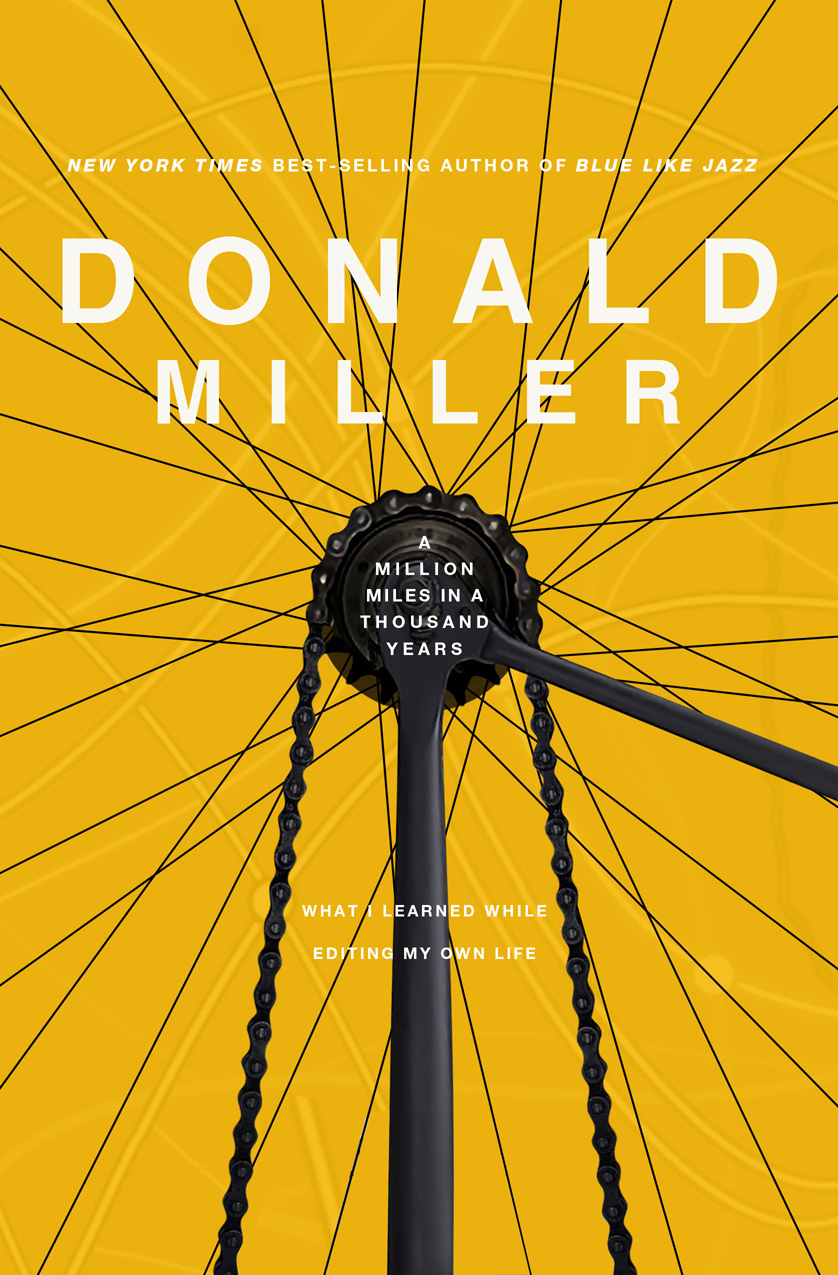 It is almost impossible for me to name a favorite book (I like far too many), but my list of best books would certainly include this one. I’ve given several copies away to friends and have recommended it to dozens of people.
It is almost impossible for me to name a favorite book (I like far too many), but my list of best books would certainly include this one. I’ve given several copies away to friends and have recommended it to dozens of people.
What makes a life worth living or a story worth telling? That’s the question Donald Miller is forced to consider when he begins working with two screenwriters who want to create a movie based on his life. The only problem is the “real” Don Miller is too boring to put into the film. They need to invent a new one—someone people will be interested in. Miller writes about how the elements of story—character, setting, inciting incidents, conflict—come together to create a life story worth paying attention to. While this book is primarily about creating a better personal story, it has all kind of applications in the business world as well. Great stories just don’t happen, they are made. Get this book and starting making your story better.
3. The War of Art by Steven Pressfield.
“Are you paralyzed with fear? That’s a good sign. Fear is good. Like self-doubt, fear is an indicator. Fear tells us what we have to do. Remember one rule of thumb: the more scared we are of a work or calling, the more sure we can be that we have to do it.”
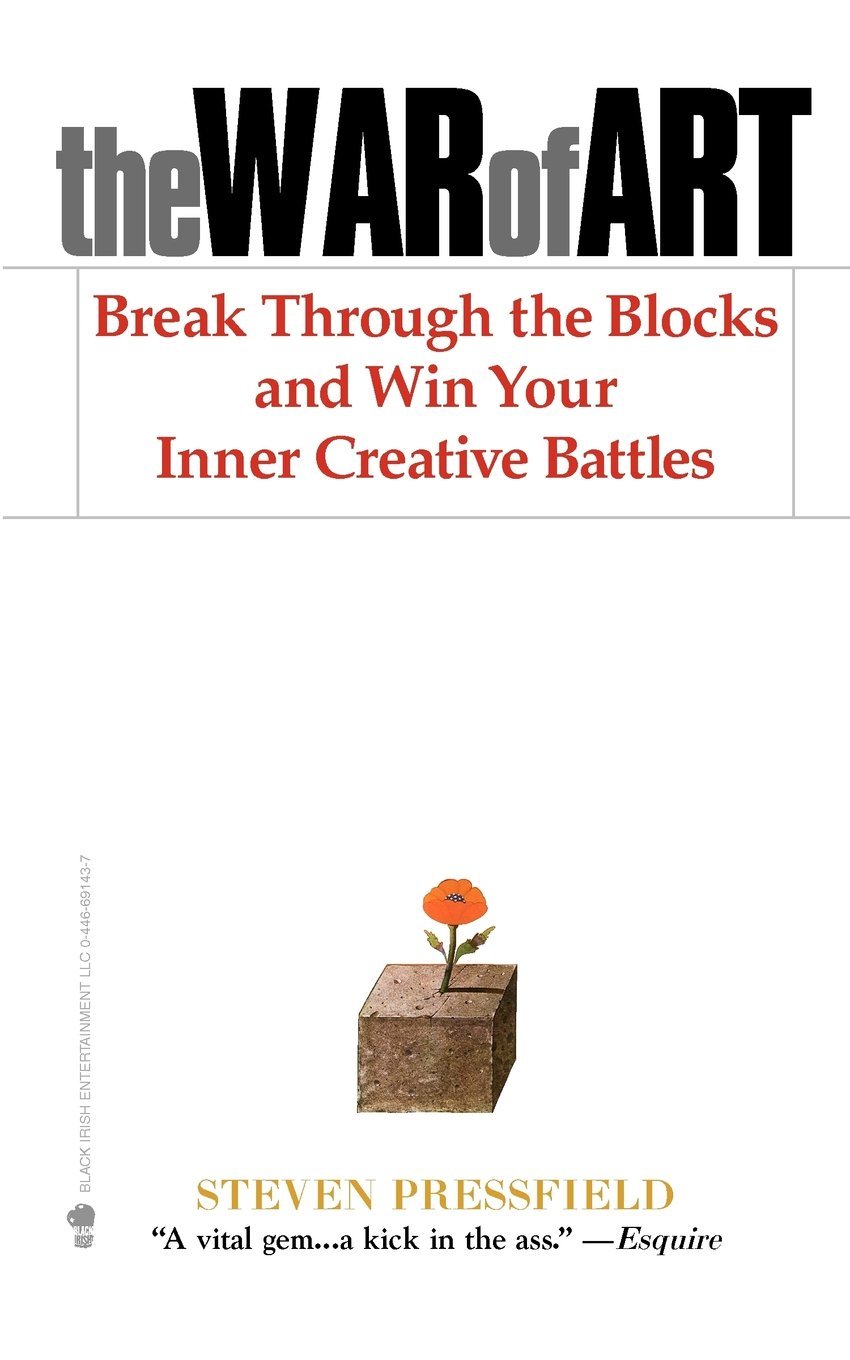 Most books that promise to help you overcome an obstacle or get through difficulties generally aren’t worth the money. Their solutions are often obvious. Or unhelpful. But not The War of Art. Steven Pressfield’s short book about overcoming the Resistance belongs on the shelf of anyone who is building or creating something new or worthwhile. It is a must-read. It’s worth reading more than once—maybe even once a year to remind you of what you are doing, and what stands in the way.
Most books that promise to help you overcome an obstacle or get through difficulties generally aren’t worth the money. Their solutions are often obvious. Or unhelpful. But not The War of Art. Steven Pressfield’s short book about overcoming the Resistance belongs on the shelf of anyone who is building or creating something new or worthwhile. It is a must-read. It’s worth reading more than once—maybe even once a year to remind you of what you are doing, and what stands in the way.
And Pressfield knows what he’s talking about. He is a fantastic writer (Killing Rommel and Gates of Fire are favorites). His books have been turned into movies, think The Legend of Bagger Vance. So it must be easy for him to sit down and start the next project, right? Wrong. This book is all about how he overcomes the fear and how you have to do it too. Here’s one more quote from the book (among hundreds) worth sharing. Read it, then get the book.
“The amateur plays part-time, the professional full-time. The amateur is a weekend warrior. The professional is there seven days a week.
“The word amateur comes from the Latin root meaning ‘to love.’ The conventional interpretation is that the amateur pursues his calling out of love, while the pro does it for the money. Not the way I see it. In my view, the amateur does not love the game enough. If he did, he would not pursue it as a sideline, distinct from his ‘real’ vocation.
“The professional loves it so much he dedicates his life to it. He commits full-time.”
4. Man’s Search for Meaning by Victor Frankel.
“When we are no longer able to change a situation, we are challenged to change ourselves.”
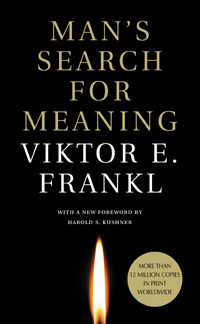 This short book is, no doubt, the most widely read of our recommendations. The Library of Congress named it one of the Ten Most Influential Books in America. It is about the meaning of freedom and how one can be free even within the walls of a concentration camp. It’s about the two “races” of man—decent and indecent—and how both types of people appear in every society. And it’s about taking control even when everything is out of your control. Most of all, it’s about finding “logos” or meaning in life.
This short book is, no doubt, the most widely read of our recommendations. The Library of Congress named it one of the Ten Most Influential Books in America. It is about the meaning of freedom and how one can be free even within the walls of a concentration camp. It’s about the two “races” of man—decent and indecent—and how both types of people appear in every society. And it’s about taking control even when everything is out of your control. Most of all, it’s about finding “logos” or meaning in life.
Frankel chronicles his experiences in four different Nazi concentration camps where his parents and wife all died. His conclusion is that we can’t avoid suffering, but we can cope with it and find meaning in it. Chances are you’ll look at life a little differently once you’ve read this excellent book.
5. The 4 Hour Work Week by Tim Ferriss
“It’s lonely at the top. Ninety-nine percent of people in the world are convinced they are incapable of achieving great things, so they aim for the mediocre. The level of competition is thus fiercest for ‘realistic’ goals, paradoxically making them the most time and energy-consuming.”
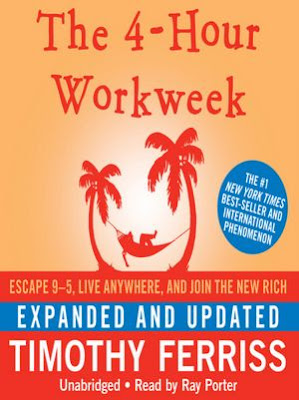 The other four books on our list are less about business and more about ways of thinking differently about your life (or about thinking). So, in some ways, Tim Ferriss’ book is a bit of a misfit on our list. But we’ll bet that if you take the time to read it, this book will change the way you think about how you work, why you work, and where you work. (There’s a reason it’s one of the ten most highlighted books of all time measured by Kindle).
The other four books on our list are less about business and more about ways of thinking differently about your life (or about thinking). So, in some ways, Tim Ferriss’ book is a bit of a misfit on our list. But we’ll bet that if you take the time to read it, this book will change the way you think about how you work, why you work, and where you work. (There’s a reason it’s one of the ten most highlighted books of all time measured by Kindle).
First let’s admit, for most readers, this isn’t really a blue print for working just four hours a week. And the author’s blatant self promotion can be off-putting. But those who read the whole thing will be left with a lot to think about, from how you to eliminate the busy work that takes up too much of your time to how to live the life you want in retirement today. Many will be inspired to find better ways to balance work and life. Mr. Ferriss includes lots of lists of resources that will help you do everything from eliminating email from your life to hiring a virtual assistant. Plus he includes lots of case studies of people actually putting his ideas to work. When it comes to changing the way you think about work, this book is a great resource.
Looking for more books to read? Check out our list of 7 Books Every Startup Owner Should Read. There you’ll find the 10 books we think every entrepreneur should have on his or her bookshelf.
Do you have a book that has changed the way you think? Tell us about it.



